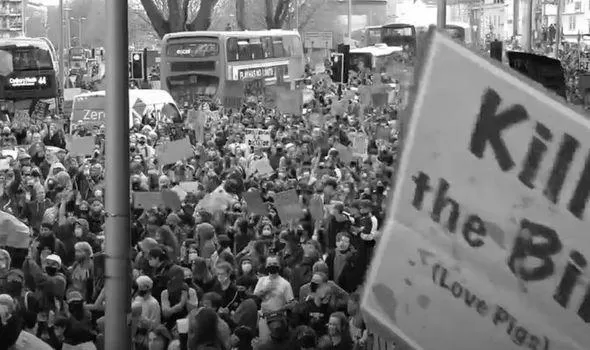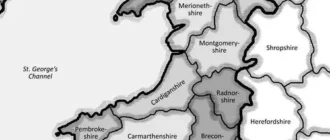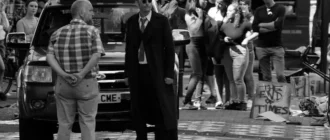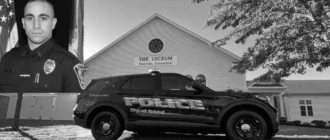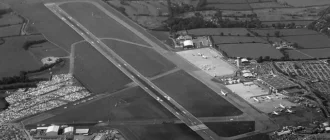If you have been wondering what the protests are about in Bristol, you have come to the right place. From ‘Kill the bill’ to ‘Fair bus fairs for all, you can find out what is happening in the city. There has been police violence and even protests against Bristol airport expansion.
‘Kill the bill’ protests.
Following a series of ‘Kill the bill’ protests around Bristol, more than 70 arrests were made. Despite this, the chief constable of Avon and Somerset police, Andy Marsh, said that the protests had been ‘hijacked’ by a handful of extremists. While many people supported the protesters, others condemned the police, accusing them of a lack of accountability and indifference. Black Lives Matter Cardiff and Vale released a statement expressing their solidarity with the protesters.
The ‘Kill the bill’ protests, which began peacefully in the early hours of Saturday morning, soon turned violent. Protesters are opposed to plans to give police sweeping powers to stop protests. The bill’s proposed changes could limit the right to protest and the time and location of protests. Furthermore, protesters could face up to 10 years in jail if they cause serious annoyance to people.
Last week, Jasmine York, arrested for rioting and arson in March, received a five-and-a-half-year sentence. The police released the video footage of her actions. She denied rioting but was found guilty of a lesser charge of arson. Despite her innocence, she was still arrested and jailed.
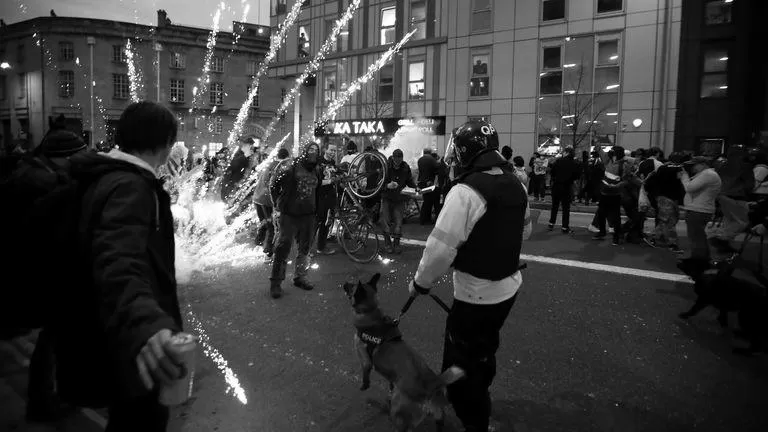
‘Kill the bill’ protests have become a significant cause for concern in Bristol and elsewhere. The bill will extend Stop and Search powers to a wide range of people, including travelers. It would also create new laws that criminalize traveler communities. Protesters say the new measures will make it harder to protest peacefully – but the Government says they are trying to balance the rights of the protesters with the rights of other citizens.
In Bristol, ‘Kill the bill’ protests have been peaceful for most of the night, but police still use dogs and a dispersal order to clear the streets.
‘Fair bus fairs for everyone
There is growing pressure to improve bus fares in Bristol. Almost seventy percent of city residents believe foods are too expensive. A campaign called Make Fares Fair has been running for nearly a year. It includes an online petition, meetings with councilors and the local MP, and a city council debate. Last year, Bristol mayor George Ferguson said the campaign had ‘instilled fear’ in First, the city’s bus company. The Bristol council has now commissioned an independent transport consultancy to process feedback.
The campaign has gathered over 3,800 signatures for a petition calling on First to reduce fares. The campaign is now working to make a case for cheaper travel in Bristol. With increasing fuel costs and a shortage of drivers, bus companies are experiencing several challenges. This has led to several crisis talks. In the past few months, the collapse of Bristol Community Transport has also created a significant crisis in the region’s public transport system.
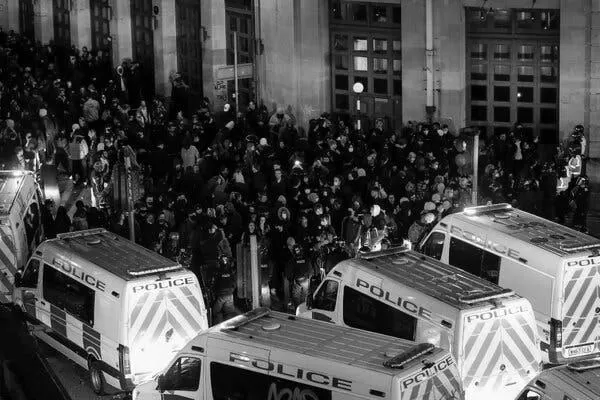
Bristol airport expansion
The planned expansion of Bristol Airport is causing protests around the world. The protesters are demanding that the airport not be expanded and instead invest in public transport. Their demands have led to the withdrawal of support for the project from the Ontario Teachers’ Pension Plan (OTPP), which owns the airport. The protesters hope to link up with the global resistance to fossil fuel infrastructure. The expansion of Bristol Airport would increase its capacity to 12 million passengers per year. It is also a social justice issue because it is unsustainable and incompatible with a sustainable and green future.
The protesters believe that the airport’s expansion is damaging to the environment and would worsen the lives of residents. In addition to increasing air traffic, the development would result in an extra million tonnes of carbon emissions yearly. They are challenging the decision of the North Somerset Council to refuse the expansion plan, which will create around 800 new jobs.
The planning inquiry, which took three months to hear evidence from hundreds of people, found considerable opposition to the expansion. Thousands of objections, complaints, and other documents were submitted. Some people even came to Bristol to oppose it. However, the court did not grant permission for the appeal.
The consultation period for the expansion of Bristol Airport started on December 19 and will end on the 26th. The airport has set a target of 12 million passengers by mid-2020, which would mean an increase of 50% in passengers and a 73% increase in CO2 emissions. The plan also involves changing the road layout, de-restricting night flights, and building a multi-story car park.
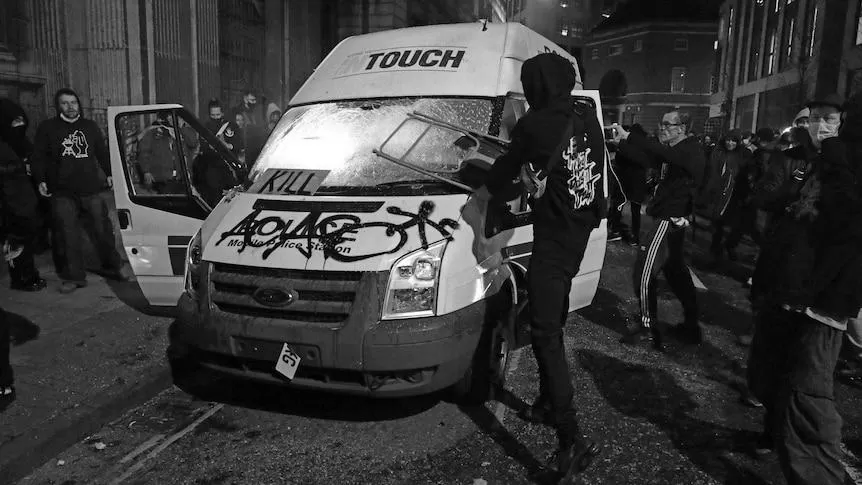
Police violence
Protests in Bristol on March 23 against elements of a policing bill targeted at traveling communities were a peaceful, largely peaceful protest until police arrived in riot gear and brutally beat and maltreated protesters and journalists. The demonstration was later moved to Bridewell Police Station, central to Bristol.
Protesters threw fireworks and missiles at police officers. Some officers were injured in the clashes. A police spokesman said officers were verbally abused and were subjected to violent attacks. Mounted officers were also deployed to help disperse the crowd. At least seven arrests were made. Avon and Somerset Police Federation chairman Andy Roebuck said the protesters acted like a “mob of animals.”
Protesters smashed the windows of a police station. They also set fire to a police van. There were several injuries, including broken bones. Protesters were angry about the proposed police and crime bill, which would grant police new powers to suppress protests. The protesters aimed to make the law prohibit police from using excessive force against protesters.
The police actions in Bristol were deeply troubling. The arrests were disproportionate and unwarranted, and the police acted excessively. In one case, a woman had been handcuffed before she was dressed, and another was tasered multiple times.
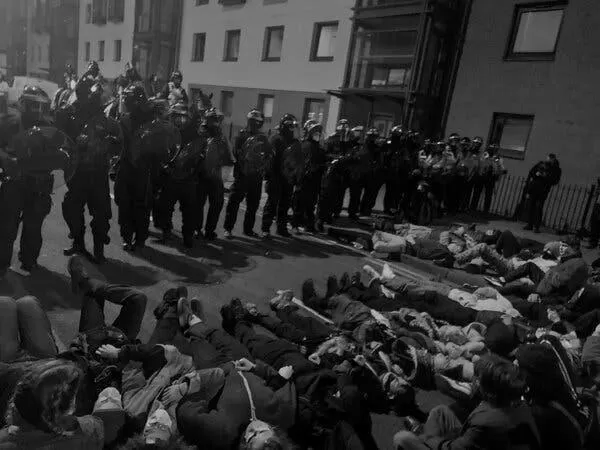
‘Shame on you
‘Shame on you is a common idiom that people use to belittle someone. It is also a common refrain in classrooms. For example, when a teacher asks a student to get their homework, the student responds, “I forgot my book at home.” In response to this admission, the teacher declares in mock outrage, “Shame on you!”
